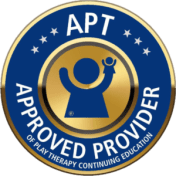Child-Centered Documentation (Jumping Mouse)
This training is essential for practitioners of Child-Centered Play Therapy (CCPT), providing an integrated framework for treatment planning, progress assessment, clinical documentation, and caregiver involvement. Participants will learn to create treatment plans and documentation that utilize symptom-focused goals while honoring CCPT principles. The training covers methods for assessing progress in play therapy, offering specific ways to observe shifts in play that indicate progress and providing a framework to trust the process under pressure. Additionally, the program addresses clinical documentation, reviewing requirements, note formats, and the use of objective language to track progress accurately. It also emphasizes caregiver involvement, offering tools and strategies to collaborate effectively, identify caregiver needs, work towards parenting goals, and enhance understanding and support of the therapeutic process. This holistic approach equips therapists to enhance their practice, meet external demands, and facilitate meaningful change in their child clients.
Presenter: Rosie Newman, LMHC, RPT-S
Location: Jumping Mouse Children’s Center
Date/Time: June 19-20, 2024 @ 9:30am – 4:00pm PST (Convert Time Zone)
CE Hours: 10 APT-Approved Contact hours*
*These CE hours are applicable for the Registered Play Therapist (RPT) credential and other mental health credentials in WA as approved by an industry-recognized local, state, national, international organization or institution of higher learning” [WAC 246-809-610(3)(a)]. For other states, please consult your state-specific CE requirements. You must be present with camera on the entire session and pass post-tests in order to receive continuing education credits.
Currently unavailable. Subscribe to our mailing list to get notified when it becomes available.
Description
Learning Objectives:
- Identify the key reasons for treatment planning for play therapists
- Describe the primary theory of personality and theory of change behind Child-Centered Play Therapy
- Demonstrate an understanding of case conceptualization in play therapy including measurable objectives and the theory of change
- Apply principles to create treatment plans that are quantifiable, allow for the way of being in the playroom, and emphasize CCPT theory
- Identify at least 3 common themes in play therapy
- Identify the stages of play therapy
- Demonstrate an understanding of assessing progress towards internal growth and integration in play therapy by being able to name at least one example
- Demonstrate an ability to translate progress examples from play therapy to parents in a way that speaks to growth while maintaining confidentiality
- Identify the key components of a play therapy progress note as emphasized by APT Best Practices
- Analyze progress notes to identify descriptive language versus interpretive language in a play therapy progress note
- Demonstrate ability to synthesize play and changes in play into language for a play therapy progress note.

APT Approved Provider 18-545

